A linear economy, our economy, shows a fairly simple structure of the life cycle of our goods. They are manufactured, distributed, sold to user, trashed by users, and then either recycled or send to a landfill as trash. However, there is one unrecognised agent that provides a level of circularity to this process.
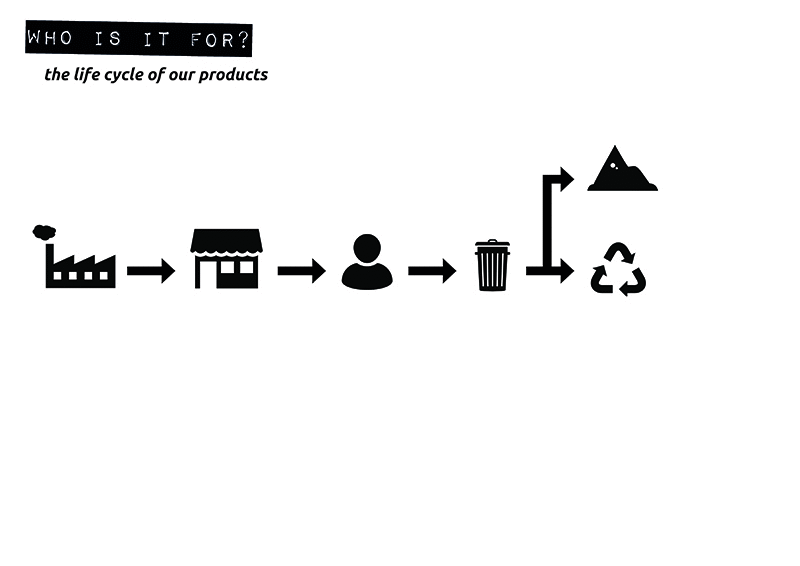
The wrongly called scrap miners get these products (not only scrap, but clothes, electronics, and others) and either resell them to manufacturers or to the black market, that more often than not brings the products to Africa.
All these agents provide a service to the city and are rewarded with a citizenship status, that ensures some rights. All but the scrap miners. These are generally sub-saharian immigrants that hold no documentation. And thus, they are denied a citizenship and subsequently any of the rights that come with it; from health insurance to other public services such as education, or simply a right to vote and decide how they are governed. They are invisible to the society.
Who are they?
But who are they? The numbers are difficult to find, they could be on the hundreds but more likely on the thousands. In Barcelona, they self-organised themselves through illegal settlements throughout the city.
But they are not the only ones. The “top manta” is another community trying to provide for themselves, trying to work in the city for their living. And so are the home cleaners, a community mostly from South-America that is usually providing for families away from them through decent unrecognised jobs.
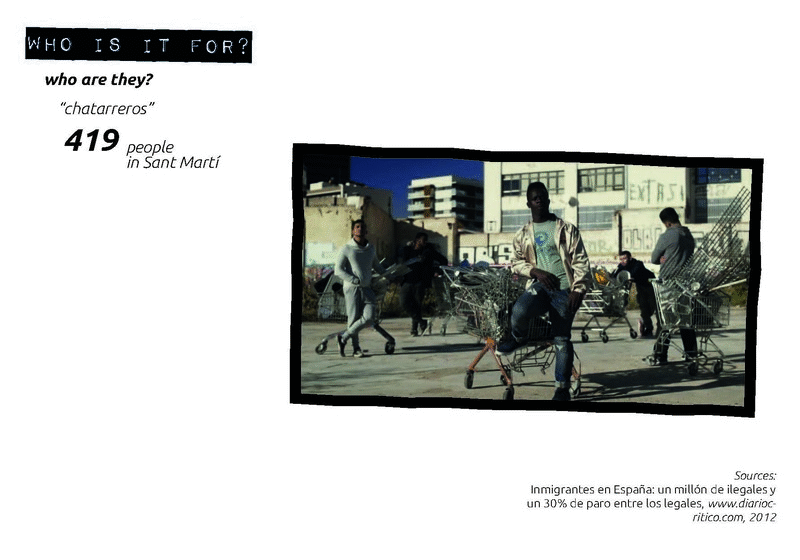
Admittedly, there have been attempts to address the situation; Alencop is a city council driven endeavor to try and give a structure to the scrap miners. The City ID is an initiative by the current Mayor of Barcelona to try and provide them with an identity that can keep them away from deportation.
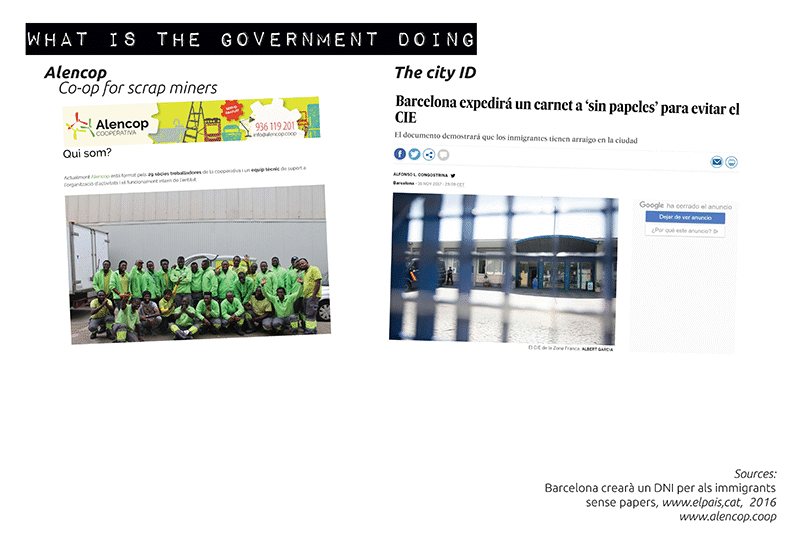
But all these projects have clashed with an unbreakable wall: the bureaucracy wall. All institutions must work within its boundaries, at therefore cannot give an answer to the problem at hand. But these boundaries are also keeping away a promise that was made:
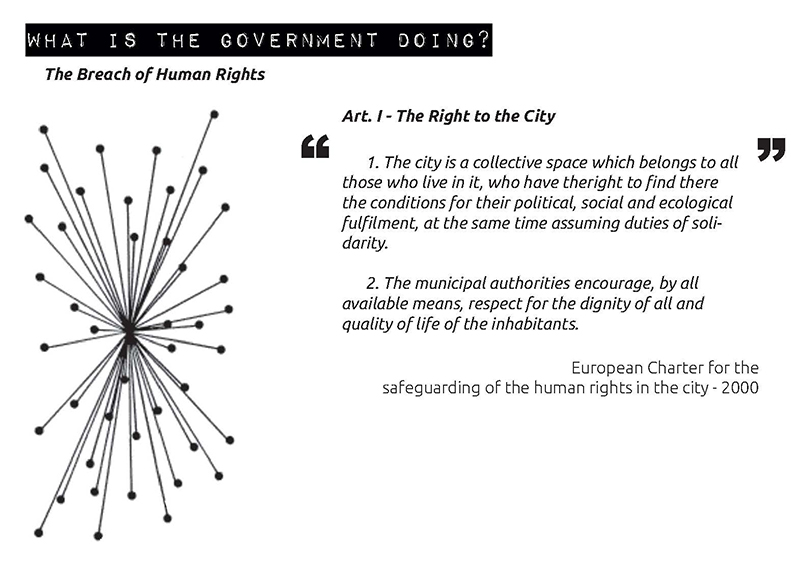
Why Blockchain?
Blockchain can allow these people to organise themselves without interference of the hand-tied Authorities. Through a bottom-only approach, the distributed network can both provide an identity whilst keeping their anonymity, and supply the tools necessary to regulate themselves without the need of a third party, with the ultimate goal of granting the same rights and services as all other citizens.
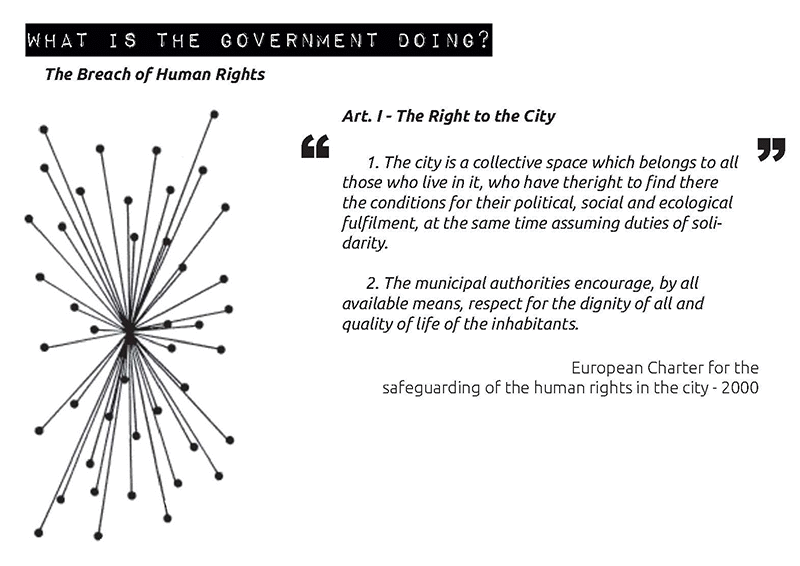
Tools
Identity: through the measurement of Biometrics, the information of the identity of the user can be embedded in a token as a key to link an activity to a user.
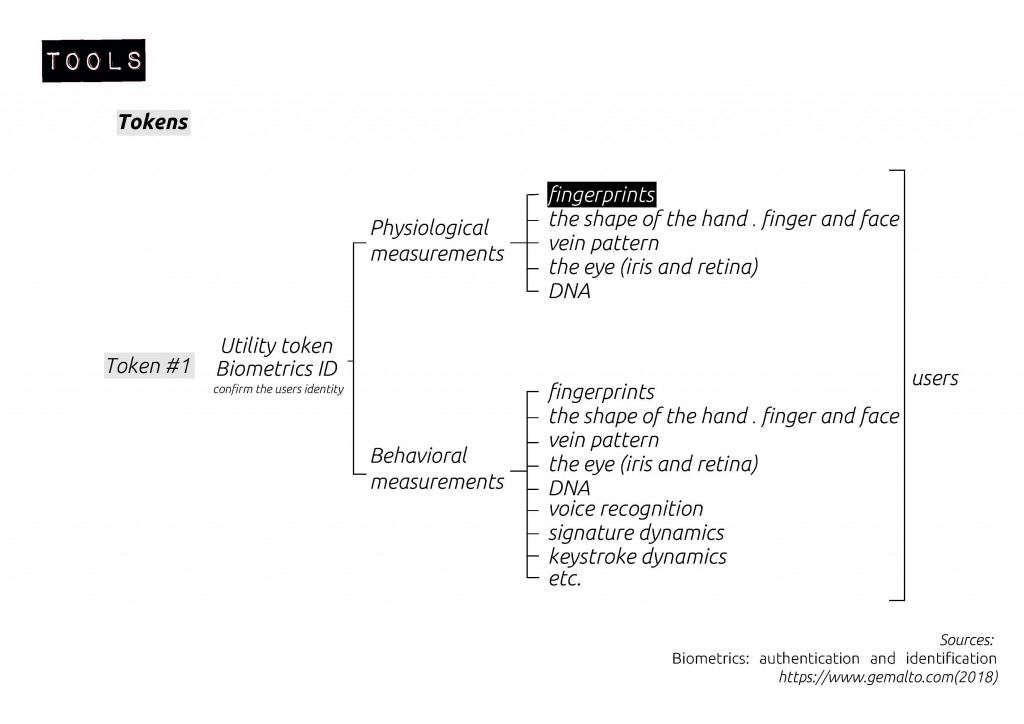
Payment token: all transactions can be executed through a token that will not only contain the information of the user but also will process the amount transacted so that a small amount of the transaction is registered as “taxes”. That money will return to the community in the form of doctor appointments, subsidies, etc.
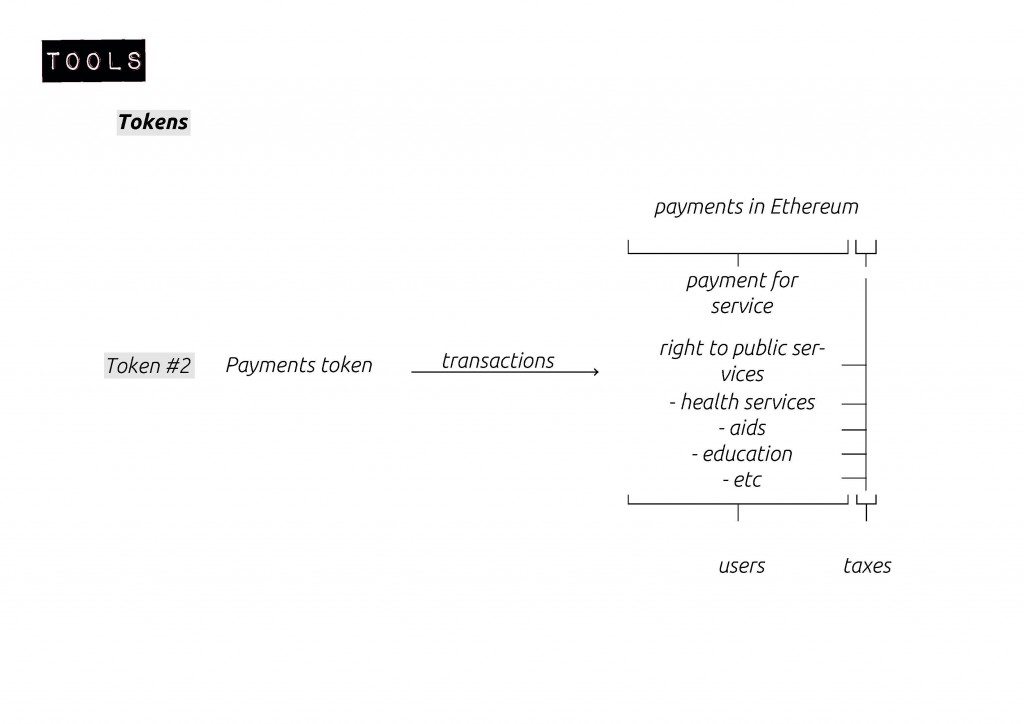
But while these tools are necessary, it is clear they are not sufficient. Since we are effectively creating a parallel society, we need a human structure, one that allows for regulations to be proposed, voted and passed: a Decentralised Autonomous Organisation (DAO).
Blockchain presents three types of DAOs. Which one fulfills our requirements?
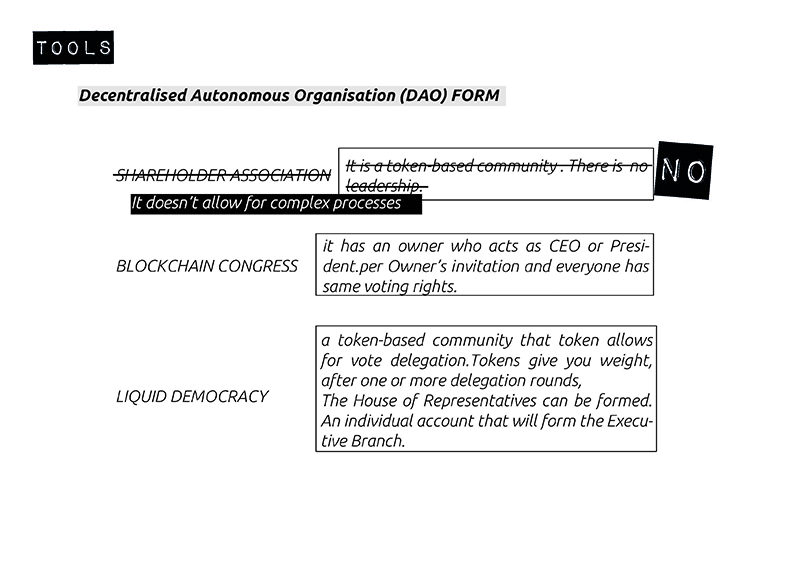
Liquid Democracy
A Liquid Democracy is a system in Blockcahin that allows all decisions on the DAO to be voted directly or in a delegative manner. Thus, all citizens can be involved in all decision making, in a more direct Democracy system, or they can delegate their vote to a trusted informed equal, when they so choose to.
In a complex system, another asset of Liquid Democracy would be beneficial: the House of Representatives. This consists on different rounds of votes aimed at achieving a shortlist of representatives elected to represent all citizens in specific fields.
At last, the Executive Branch tool will allow one unique appointee chosen amongst the House of Representatives to deal with all matters that can’t be dealt in an assemblary manner.
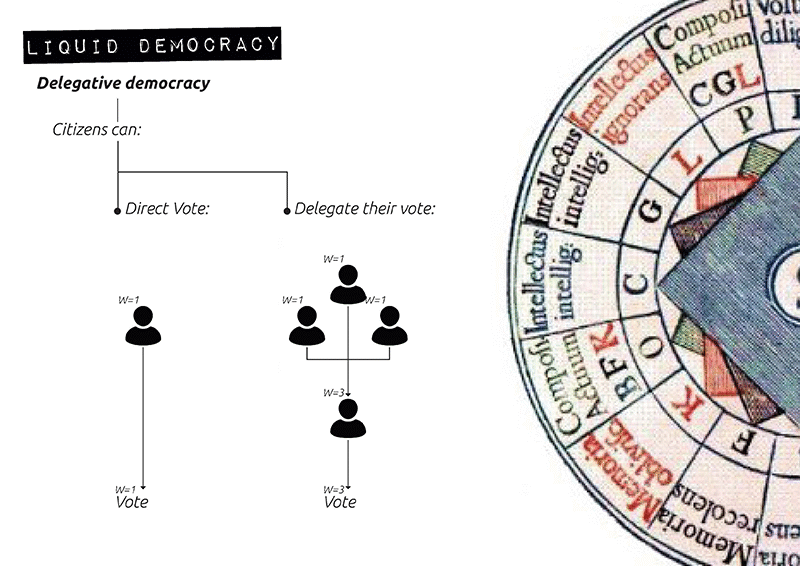
Once all these tools are laid out, new agents will adjoin it, i.e. healthcare facilities or practitioners, education centres. In time, the system will be normalised and an exponential increase of partakers can be expected.
This might set an example for the rest of us, an example of empowerment that we need to start trusting this technology, and have us wanting a more democratic system, that is finally ruled by logic and reason, and not the arbitrary status quo of Authority.
A CITIZENSHIP FOR THE SINPAPELES is a project of BLOCKCHAIN 4 CITIES of IaaC, Institute for Advanced Architecture of Catalonia developed at Master in City and Technology in (2018/2019) by: